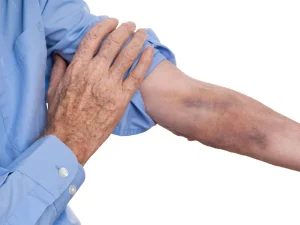
Let’s not forget about omega-3 fatty acids, the brain’s best friend. These healthy fats are crucial for cognitive function and have been shown to help reduce inflammation in the brain. Focus on small but frequent meals that contain complex https://ecosoberhouse.com/ carbs (like whole grains), dairy, protein, and healthy fats like those in olive oil or fish. Vitamin supplements could make a difference, but talk to your doctor first. Too much of some vitamins, like vitamin A, can harm your health.
Addiction and Nutrition
People may wonder are vitamins drugs, but they may be helpful tools. While undergoing detox, addicts may suffer nausea, vomiting, and diarrhea, which can further deplete nutrients and hydration levels. Since nausea is a frequent symptom of opiate withdrawal, it is unlikely that these patients can consume sufficient nutrients by eating. People who drink alcohol are at higher risk of calcium deficiency, since alcohol interferes with your body’s ability to properly absorb this vital nutrient.
How Doctors and Nutritionists Can Help
Laboratory tests for protein, iron, and electrolytes may be needed to determine if there is liver disease in addition to the alcohol problem. Women who drink heavily are at high risk of osteoporosis and may need to take calcium supplements. Eating balanced meals may make these symptoms less severe (however, eating can be difficult, due to nausea). A high-fiber diet with plenty of complex carbohydrates (such as whole grains, vegetables, peas, and beans) is recommended. Recovery from substance use also affects the body in different ways, including metabolism (processing energy), organ function, and mental well-being. Potassium is a type of electrolyte essential for the normal function of the kidneys, heart and other organs.
- NAC is a semi-essential amino acide that aids in the production of the antioxidant glutathione.
- If you aren’t regularly eating a wide range of nutrient-rich foods, consider a multivitamin as the first supplement you choose to help with opiate withdrawal.
- I usually take just 200 mg, but you should experiment and see how much you can tolerate.
- But as the years begin passing and more physical health issues manifest, individuals of all ages and genders start to pay closer attention to vitamins and the benefits they provide.
Start With a Balanced Diet and Multivitamin Supplement
Low levels of potassium are linked to mental fatigue and sudden mood changes. Sources of potassium include bananas, apricots, lentils, raisins and milk. Found in fish, omega-3 helps prevent symptoms of depression and bipolar disorder. vitamins for recovering alcoholics Also known as folate, vitamin B9 is important for healthy cell growth and is often used for depression in patients who can’t tolerate lithium or SSRIs. Folate is required by the brain to effectively synthesize serotonin and dopamine.

In animal studies, researchers found that l-theanine reduces opiate withdrawal symptoms and has anti-anxiety properties. In short, supplements can help with opiate withdrawal by helping you to feel better emotionally, mentally and physically as you recover from an addiction. Taking supplements like vitamin C, NAC, and GABA may help replenish your nutrient stores, potentially reducing your cravings and easing your withdrawal symptoms. Supplements can help reduce alcohol cravings by addressing nutritional deficiencies, regulating neurotransmitters, and providing antioxidant support, among other mechanisms.

With a slow cooker, you put the ingredients in, turn it on and let it cook, and a few hours later, you have a hot meal waiting for you. Staying hydrated can help you avoid several negative side effects, like muscle cramps, headaches and fatigue. When enough magnesium is present in the brain, the dopamine surge related to opiate use is muted. There is evidence that magnesium deficit is involved in addiction to various addictive substances (heroin, morphine, cocaine, nicotine, alcohol, caffeine, and others).

Diet for Healing
It’s important to point out that many prescription drugs are anticholinergic, meaning they reduce acetylcholine in the brain. Some preliminary research also suggests citicoline could help people with alcohol, cannabis and food addiction (10). Research shows that vitamin and mineral deficiencies can cause metabolic imbalances that create addictive cravings (97, 98). I personally have experience with tobacco, nicotine, alcohol, stimulant, benzodiazepines and antidepressant dependence, addiction and withdrawal. Perhaps that’s alcohol, cigarettes, cannabis or harder substances like cocaine, heroin, methamphetamines. It promotes feelings of relaxation without causing drowsiness, and it can help to lower stress hormone levels.
This is because addictive substances (like opioids) strongly increase dopamine in the brain. NAC is a semi-essential amino acide that aids in the production of the antioxidant glutathione. A lack of vitamin B9 can trigger anemia and make you weak, tired, and moody. Folic acid is in foods like enriched bread, flour, cornmeal, pasta, rice, and breakfast cereals.
Join Our Brain and Mental Health Community
- It is important to get enough fluids during and in between meals.
- Feeling unwell because of poor nutrition only exacerbates these disorders.
- The FDA regulates dietary supplements differently than “conventional” foods or drugs.
- They may help ease depression and help bodies absorb needed nutrients and return to normal functioning.
This is the reason you go through withdrawals when you quit opiates – your brain chemicals are no longer balanced. Using vitamins and supplements can help get you through the process of healing from opiate addiction. L-glutamine, an amino acid, reduces cravings while balancing blood sugar levels. Vitamin C is also commonly used to strengthen your immune system, which has been weakened by the stress of alcohol use. It also helps to rid the body of excess alcohol during the withdrawal period. During the recovery process, it is also important to raise the levels of protein consumption.

